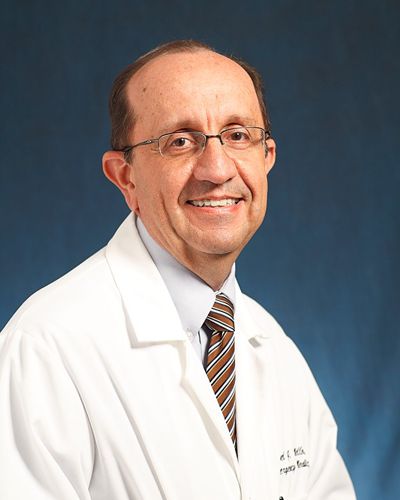Opioid prescribing and counselling in hospitalized adolescent trauma patients
Michael J. Mello, MD, MPH, FACEP
Jeremy Aidlen, MD
Janette Baird, PhD
Sara Becker, PhD
Julie Bromberg, MPH
Emily Christison-Lagay, MD
Beth Ebel, MD, MPH
Andrew Kiragu, MD
Karla Lawson, PhD
Lois Lee, MD, MPH
Robert Todd Maxson, MD
Isam Nasr, MD
Charles W. Pruitt, MD
Stephanie Ruest, MD, MPH
Kelli Scott, PhD
Anthony Spirito, PhD
Mark Zonfrillo, MD, MSCE
Part of session:
Platform Presentations
Friday, December 2, 2022, 1:15 PM to
2:30 PM
Background:
In 2017, 17% of adolescents reported any opioid use and of those using opioid 18% reported misuse (1). We have previously reported variability in opioid prescribing to adolescent patients at pediatric trauma centers (2). This presentation examined the frequency with which adolescent trauma patients prescribed opioids at discharge received counselling about opioid safe usage and if this differed by adolescents having alcohol and drug (AOD) use.
Methods:
This analysis was embedded within a larger prospective stepped-wedge trial that implemented AOD screening across a national cohort of pediatric trauma centers. Data were collected from adolescent trauma patients (12-17 yo) at nine study sites during the pre-implementation phase from 2018-2021. Patient data were extracted from the electronic health record (EHR) on any prescribed discharged opioids, documentation of counseling received about their prescribed opioid, who delivered counseling, and patients’ alcohol and drug screening results. Additionally, adolescents received an online survey within 30 days of their discharge that asked if a discussion on safe use of opioid medication occured during their hospital admission.
Results:
Of the 271 adolescent trauma patients enrolled during the pre-implementation phase, 153 completed the 30 day survey. The EHR identified 107 (69.9%) as male, mean age = 15.3 years (SD = 1.7), 70.5% as White, 14.1% as Black or African American, and 15% as Hispanic. AOD screen results were documented in the EHR for 138 patients (90.8%), with 67 (44.1%) screening AOD positive. Opioids at discharge were prescribed to 86 (56.2%) adolescent patients, with no significant difference between those screened AOD positive and AOD negative (42.4% vs. 46.3%, p = 0.89). Opioid counseling was documented in the EHR for 30 (34.9%) of those prescribed an opioid. Documented counseling was predominantly provided by a nurse (66.7%) or resident (23.3%): none of the documented opioid counseling was provided by social work, addiction medicine, psychology, or psychiatry. According to the adolescent survey, among those prescribed an opioid, 59.3% reported someone had talked with them about safe opioid administration. Among the AOD positive patients who were prescribed an opioid, 24 (66.7%) adolescents stated had a safe opioid use discussion compared to 22 (53.7%) of those AOD negative, (p = 0.33).
Conclusions:
We found that more than half of hospitalized adolescent trauma patients were prescribed an opioid at discharge. Receipt of an opioid prescription and opioid counseling did not differ if adolescents had screened positive for AOD use. Although adolescents recalled discussions occurring more often than was documented, discussions were not universal, and content /quality of those discussions could not be determined. Future work should evaluate universal opioid safety counseling in pediatric trauma centers, particularly among youth screening positive for AOD. 1. Kelley-Quon LI, et al. Guidelines for Opioid Prescribing in Children and Adolescents After Surgery. JAMA Surg. Jan 1 2021;156(1):76-90. 2. Mello MJ, et al. Variability in Opioid Pain Medication Prescribing for Adolescent Trauma Patients in a Sample of US Pediatric Trauma Centers. BMJ Trauma Surgery & Acute Care Open. April 2022.
Objectives:
Attendees will:
1. Understand that opioid prescriptions are frequently prescribed at discharge to hospitalized adolescent trauma patients.
2. Identify that adolescents that screen positive for alcohol or drug use during admission need focused attention regarding opioid prescriptions.
3. Describe the need for universal substantive counseling around safe opioid use with adolescent trauma patients.

